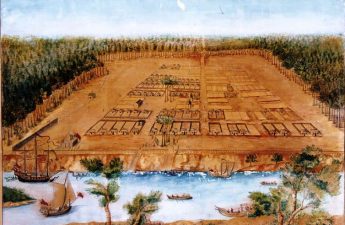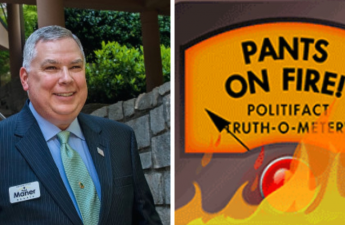The eReader version is only 99 cents!
Chapter One
In the silence between the clatter of dishes and the waitress’s barked order, Charlie Sherman heard himself dripping. He counted tiny splashes on the laminated menu: one, two, three. Waving to get the server’s attention accelerated the patter. Interesting.
It was late on the night after Christmas, and less than an hour before, Charlie had been a semi-respectable stay-at-home suburban father, failing novelist, and not-so-loving husband. Now he was homeless, and he looked the part, in a torn blue nylon bomber jacket, tattered beige Henley shirt, paint-spattered gray sweat pants, and holey black basketball shoes. To top off his grungy appearance, he wore basketball goggles—a necessity after he’d broken his tortoise-shell frames during a Christmas Eve wrestling match with his four-year-old son, Ben. Not only did they make him look like a devolved alien, but the prescription was ten years old, so they gave him a headache, too.
He’d been thrown out of the house following an ugly domestic dispute that was not, at this fragile time, resolvable. Upon bitter reflection during the driving rainstorm, Charlie had concluded that Susan had wanted him out for months. Still, the eviction had come as a surprise. A shock, actually.
He’d been in the garage minding his own business, plunking bolts into a can, straightening up his workshop in preparation for his next home improvement project—just two days after he’d finished renovating the master bath. When he heard Susan hollering, Charlie thought his wife was being assaulted. Armed with a mini-sledgehammer, he’d rushed to her side, only to learn that he was the problem—one she’d decided she could do without.
She was standing in his office, pointing at his computer screen. Dumbfounded, Charlie stared at it. Honestly, he had no idea how that picture had become his screensaver. Due to the vagaries of Microsoft Windows, he had unwittingly turned a photo of a mournful-looking young blonde being gangbanged by a basketball team into his desktop background. An anti-virus icon covered her left nipple, but she was otherwise completely exposed. Damn you, Bill Gates.
Meanwhile, Susan let loose. “You fucking asshole,” she said. “Get out of my house.”
That was just her opening statement. When she unloaded, she could carry on for days on end, just like her mother. Before Charlie could properly formulate a response to her rapid-fire accusations, the cops arrived. Almost instantly, it seemed. Of course, she invited them inside.
While Charlie never swung the mini-sledge at anyone, hit anything, or even threatened Susan with it, he was still holding it when the cops came in, and they didn’t like that very much. One of them drew his gun, and they ordered Charlie to put it on the floor—and his hands on his head. Her face pinched and flush, dark eyes throwing daggers in her husband’s direction, blonde hair flying as she wagged her head and shook her fist, Susan then accused her husband of threatening her with the hammer, or more precisely, wielding it in a menacing way. “He acts like he wants to use it on something, maybe me,” she said. Then she launched into her longstanding complaint: “It would take a miracle for him to get a real job instead of writing books no one will ever read.” She delivered this pronouncement in that hateful North Georgia twang that was the hallmark of her family.
Charlie was left sputtering by the attack. “Hey. Just … wait a minute—”
“Cool down,” said the white cop, laying a hand on Charlie’s shoulder.
“Chill out,” said the black cop, pushing him toward the door.
“Just go,” Susan said. “Porn freak.”
So there he was, down and out. With his van blocked in by two squad cars in the driveway, Charlie stomped off into the jaws of a winter thunderstorm. After walking a mile in the rain, he came to the Hanover Drive overpass at Interstate 285. Consumed by both rage and despair, Charlie had a George Bailey moment as he stopped on the bridge and stared out through the rain into traffic. Yes, this seemed a fitting end, since his suicidal father had, on a lonely evening long ago in Missouri, embraced his own Goodnight, Irene moment and jumped in the river to drown—or at least to disappear forever.
And then something strange happened. As he stuck his left leg over the tubular guard rail and gazed out through the rain at the oncoming traffic, he saw a transit bus nearly sideswipe a gasoline tanker. An instant later, the tanker spun out of control at sixty miles per hour on the rain-slick Interstate beneath him. In cart-before-horse fashion, the eastbound tractor-trailer became a trailer-tractor. Its headlights flashed on the median wall, then swept across the windshields of the vehicles behind it, then spotlighted the noise barrier beyond the right shoulder, and finally returned to illuminate the highway ahead as the rig regained its proper configuration, having narrowly avoided crashing into the swerving bus and several other vehicles.
Not only had the truck spun out without wrecking and miraculously come back under control, but Charlie would swear he’d seen someone riding on the outside of the truck. For an instant, he’d glimpsed a man standing on the truck chassis between the back of the short-haul cab and the front of the tanker trailer.
Fascinated, Charlie removed his leg from the rail and ran across the bridge to see what would happen next. He put his hands on the cold, wet rail and leaned over to watch as the vehicle pulled to the shoulder and shuddered to a stop, air brakes squealing and gasping. A few seconds later, the driver jumped from the cab. Through the hum and whiz of traffic, Charlie thought he heard the man retching. But there was no sign of the truck-surfer.
Suddenly he realized that if he killed himself, he wouldn’t be able to see weird stuff like that anymore, which would be tragic. Also, shame crept into his heart. After all, jumping off a highway bridge into traffic was one of the most socially irresponsible methods of suicide imaginable. At the very least, he could come up with a way to do it that didn’t snarl traffic for hours. So he decided to mull things over instead.
Having temporarily given up on giving up, he hiked through the rain up the hill to Pancake Hut, where the waitress—Lil Bit, according to her nametag—refused to acknowledge his existence and pour him a cup of coffee. Usually he wouldn’t set foot in the place. Pancake Huts were notorious for discriminating against gays and blacks, and Charlie was a liberal, of sorts. However, at the moment, he needed shelter from the storm, not political correctness. Anyway, he was white, so what was up with Lil Bit’s cold shoulder? It was just a diner, damn it! With a “74” on its inspection certificate!
Perhaps the restaurant sensed his disrespect, for the place had turned against him the instant he walked in the door. One of the young drunks in the booth behind him called Charlie “’tarded” when he took his seat. The other muttered, “homeless fuck.” Obviously, these were not his people: One wore a camouflage hunting outfit and the other a red baseball cap adorned with a Rebel battle flag and the words “Fergit, Hell!” And they’d been cooing insults at him ever since. Of the four other people in the place, only the cook had failed to show his contempt for the soggy newcomer. (Then again, his back had been turned the whole time, so maybe he had.) In any case, having just survived and escaped his own worst impulses, Charlie now felt trapped in this Pancake Hut of Hate.
The rain quickened, pattering on the roof like a manic drummer. Charlie lowered his hand and raised it. The dripping had slowed, so he waved to get the water molecules in his cuff moving again. Lil Bit, standing behind the counter just a few feet away, continued to give him the alert indifference only the best truly bad servers have mastered. She’d wait on him, all right—to leave. When he recalled a news story about a homeless man who’d been fed cleaning fluid by a Pancake Hut cook, Charlie thought that maybe it was better if they didn’t serve him after all.
Well, she was stuck with him, since Charlie had nowhere else to go. He didn’t even have his wallet, just a ten-spot he’d stuffed in the pocket of his sweat pants weeks ago. Enough to pay for food, if Lil Bit would notice him.
The drunks escalated their insults. Apparently, having failed to charm any women at the topless bar across the street, they were now intent on kicking some ass before they called it a night. “Come on, turdface, step outside,” the Rebel said. “Just you and me. We’ll go a few.”
Charlie was big, six feet four inches, but he was in his forties, overweight, and relatively nonviolent, so he ignored the invitation. He just wanted some coffee. He didn’t even care if it was good, so long as it was hot and not laced with ammonia or bleach. After that, he’d figure out how to survive the night. Or maybe, if he got a chance, he’d make a run for it.
Right then, he decided that no matter what, he wasn’t going home, not until Susan got down on her knees, apologized for what she’d done, and begged him to come back. Which might not happen for a while. Or ever.
His thought was punctuated by a flash that lit up the sky. As the lights went out, a loud boom rocked the diner. The guy in camouflage drawled, “What the hell?”
As the diner’s occupants murmured in concern, another bolt landed just behind the building with a blinding flash. A few seconds later, Charlie noticed a greenish-yellow glow through the rearmost side window—like some kind of radioactive fire.
The lights flickered back on. The rain let up.
His antagonists, apparently having short attention spans, refocused on their ham, eggs, and grits, so Charlie decided to take the opportunity to slip outside, check out the fire, and mosey off into the night, thereby avoiding the whupping he’d been promised. He slipped off his stool unnoticed as his antagonists grumbled and chewed.
Charlie stepped outside. He walked around the diner and saw something on fire behind the building. Whoa. Make that someone. Fighting panic, he ripped off his soaking wet bomber jacket and tossed it over the prone figure, putting out the flames and raising a cloud of acrid, funky-smelling smoke and steam. Whew.
The poor wretch lay motionless. Charlie picked up his coat and saw a six-inch-wide hole in the back of the victim’s black leather jacket. Sure that nobody could survive a direct hit like that, Charlie reached for his cellphone … which he’d left at the house. Damn it. He’d have to go back inside and use the pay phone to call 911, which meant facing those assholes.
He debated the issue for a moment, looking back at the diner, then into the night. Out of the corner of his eye, he saw signs of life. The victim’s fingers drummed the concrete. Shave and a haircut, two bits. The body folded in on itself, fetus-like, and then jackknifed open with alarming speed. Charlie watched in amazement as the once-dead creature rolled over on his back and started to rise, yawning and stretching as he did so. His eyes fluttered open, showing rolled-up whites. Charlie yelped in horror at the zombie-thing, now standing in a crouch.
“Do not be afraid. I’m here to help,” the fellow said in a raspy voice crackling with static.
“I’m not afraid,” Charlie claimed as a deep chill swept through his body. “Just curious.”
The guy he’d given up for dead held out his arms as if to suppress applause, then coughed out smoke. Shaking his head, he wavered unsteadily on his feet. He was short, with long, unkempt, iron-gray hair, and looked old beyond his time, like a wizened drug freak, scrawny old biker—or jazz trumpeter Chet Baker near the end of his days. He removed his jacket and examined the hole, which was bordered by a circular scorch mark. He sniffed it, said a rueful goodbye, and tossed the garment over his back into the Dumpster.
The stranger staggered around briefly but wouldn’t let Charlie touch him, contorting to avoid a helping hand—as if he was an extraordinarily clumsy Neo dodging bullets in The Matrix. “You do not want a piece of me,” he warned. “Not when I’m fully charged.”
Liked this post? Follow this blog to get more.




